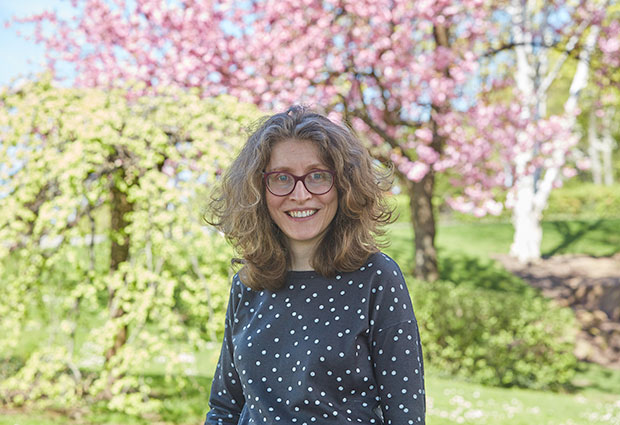Meet the Trainer – Anna Kreshuk

Meet Dr. Anna Kreshuk, a group leader in the EMBL Cell Biology and Biophysics unit, whose group uses machine learning to develop automated methods to help biologists speed up image analysis. Anna joined EMBL in 2018 and has since been very active in building up training opportunities in her research field.
What is your research focus and why did you choose to become a scientist?
My research is concerned with developing new machine learning-based methods of the analysis of biological images. I enjoy doing science, both for the thrill of finding new things and the joy of seeing others do that in their domain with the help of our tools.
Where do you see this field heading in the future?
I hope to see most of the routine image analysis automated in the future. This will hopefully raise new research questions in biology which can only be answered by imaging at scale, creating, in its turn, more exciting research questions for us.
How has training influenced your career?
We develop software for end users without computational expertise, who want to solve biological problems we don’t quite understand. Participating in training has provided a lot of insight to the user side of things, brought new collaborations and even new research directions for me and for my group.
What is your number one tip for people looking for scientific training?
A one-week course can be a great start, however, it’s important to find out how you can get support with the new technology in your everyday work. Try to stay in contact with your course buddies, but also look for online communities. For image analysis, for example, there is a great forum connecting all the popular tools.
If you weren’t a scientist, what would you be?
My 7-year-old recently asked: “you say I can become anything I want to be, but then why didn’t you become an astronaut?”. Seriously though, I’d probably be a programmer, I love automating things.
You are organising the EMBL Course: Deep Learning for Image Analysis (20 – 24 January 2020). What is the greatest benefit of the course for the scientific community and what could the techniques in this course be used for in the bigger picture?
Deep learning has brought an enormous advance in computer vision. We can now analyse microscopy images in ways no one thought possible just 10 years ago. While the technology is getting more accessible every year, it’s still difficult even for computationally savvy biologists to apply state-of-the-art methods to their image analysis problems. This is exactly the gap we intend to close.